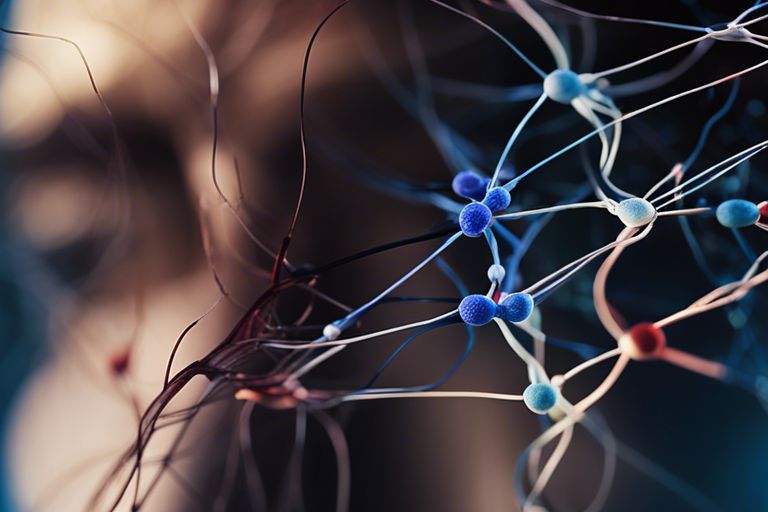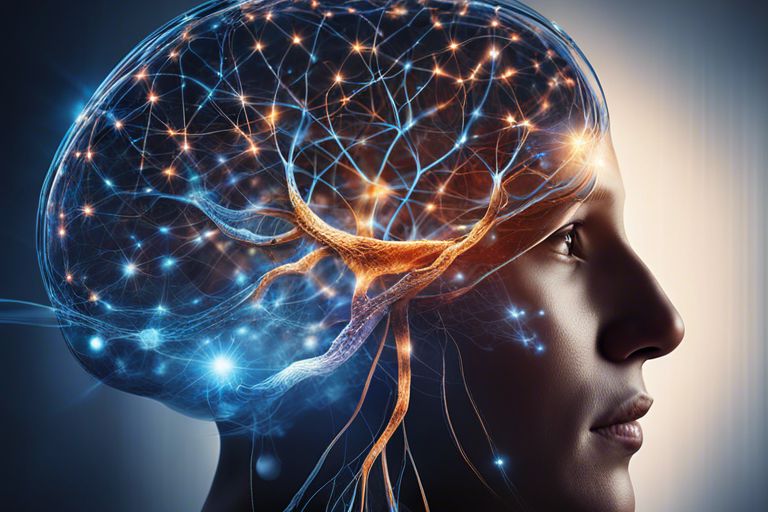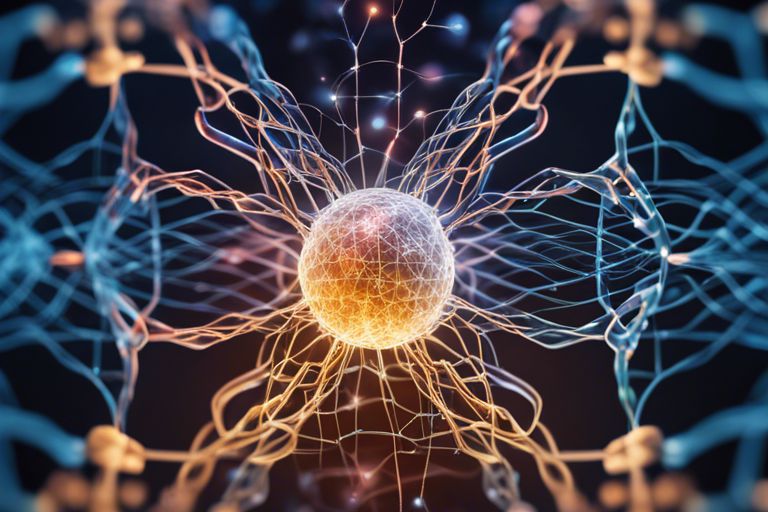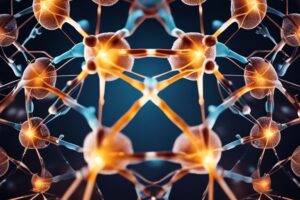Autism and schizophrenia are two complex neurodevelopmental disorders that have garnered significant attention in the medical and scientific communities. Understanding the potential connections between the two conditions is crucial for improving diagnosis, treatment, and support for individuals affected. While researchers have yet to find a direct causal link between autism and schizophrenia, there are several overlap in symptoms and genetic factors that suggest a possible relationship. Investigating these connections is vital for advancing our knowledge of these disorders and ultimately enhancing the quality of life for those living with autism or schizophrenia. Join us as we explore deeper into the intriguing world of autism and schizophrenia to uncover any potential links between these conditions.
Key Takeaways:
- Autism and schizophrenia are not directly related, they are different neurodevelopmental disorders with distinct characteristics and symptoms.
- There may be overlapping genetic factors between autism and schizophrenia, suggesting some level of underlying connection.
- Research is ongoing to further understand the potential links and differences between autism and schizophrenia for improved diagnosis and treatment strategies.
Defining the Disorders
When examining the potential connections between Autism and Schizophrenia, it is crucial to first understand the defining characteristics of each disorder. Both Autism Spectrum Disorder (ASD) and Schizophrenia are complex neurodevelopmental conditions that can significantly impact an individual’s cognitive and social functioning.
Characteristics of Autism Spectrum Disorder
Autism Spectrum Disorder (ASD) is characterised by difficulties in social communication and interaction, as well as restricted and repetitive patterns of behaviour, interests, or activities. Individuals with ASD may exhibit challenges in understanding social cues, expressing emotions, and forming relationships. Additionally, they may engage in repetitive behaviours such as hand-flapping, rocking, or sticking to rigid routines.
Moreover, individuals with ASD often have sensory sensitivities, experiencing either heightened or diminished responses to sensory stimuli like sounds, textures, or lights. These sensory differences can significantly impact how individuals with ASD navigate their environment and interact with others.
Features of Schizophrenia
Schizophrenia is a severe mental disorder characterised by disturbances in thinking, perception, emotions, and behaviour. Individuals with Schizophrenia may experience hallucinations, delusions, disorganised thinking, and impairments in cognitive functions. These symptoms can significantly affect an individual’s ability to function in daily life and maintain relationships.
Individuals with Schizophrenia may also exhibit a lack of insight into their condition, which can pose challenges in seeking and adhering to treatment. It is essential for healthcare professionals and caregivers to provide support and assistance to individuals with Schizophrenia to help manage their symptoms and improve their quality of life.

Exploring Genetic Links
Hereditary Factors in Autism and Schizophrenia
Both autism and schizophrenia have a significant genetic component, with research suggesting that hereditary factors play a crucial role in the development of these disorders. Studies have shown that individuals with a family history of either autism or schizophrenia are at a higher risk of developing the condition themselves. This indicates a clear genetic link that predisposes certain individuals to these disorders.
- Hereditary factors are key determinants in the manifestation of both autism and schizophrenia.
- Research suggests that individuals with a family history of either disorder are at a higher risk of developing the condition themselves.
- This highlights the genetic vulnerability that can be passed down through generations.
This emphasises the importance of understanding the genetic factors at play in autism and schizophrenia to develop more targeted treatment and intervention strategies.
Key Genetic Studies and Their Findings
Several key genetic studies have been conducted to understand the underlying genetic mechanisms of autism and schizophrenia. These studies have identified specific genetic variations that are associated with an increased risk of developing these disorders. For example, de novo mutations have been found to be more prevalent in individuals with autism spectrum disorder, while certain gene mutations have been linked to an increased susceptibility to schizophrenia.
- Specific genetic variations have been identified in both autism and schizophrenia.
- Studies have revealed a higher prevalence of de novo mutations in individuals with autism spectrum disorder.
- This provides valuable insights into the genetic architecture of these disorders.
Understanding these genetic findings can lead to the development of more targeted treatments and interventions that address the underlying biological pathways involved in autism and schizophrenia.
Neurobiological Connections
Brain Structure and Functional Similarities
Research has shown intriguing similarities in the brain structure and functional patterns of individuals with Autism Spectrum Disorder (ASD) and Schizophrenia. Both conditions exhibit alterations in brain regions responsible for social cognition, emotion processing, and communication. Studies using advanced neuroimaging techniques have revealed overlapping abnormalities in areas such as the prefrontal cortex, amygdala, and hippocampus.
Furthermore, dysregulation in brain networks associated with attention, sensory processing, and executive function have been observed in both ASD and Schizophrenia. These findings suggest a shared neurobiological basis underlying certain cognitive and behavioural features of these disorders.
Neurotransmitter Systems and Their Roles
Investigations into neurotransmitter systems have also provided insights into the relationship between Autism and Schizophrenia. Abnormalities in dopamine, serotonin, and glutamate pathways have been implicated in both conditions. The dopaminergic system in particular has been linked to reward processing, emotion regulation, and psychotic symptoms seen in Schizophrenia, as well as repetitive behaviours and sensory sensitivities characteristic of ASD.
Moreover, genetic studies have highlighted common variations in genes encoding neurotransmitter receptors and transporters, suggesting a shared genetic vulnerability that may contribute to the development and manifestation of Autism and Schizophrenia.
Further research is needed to elucidate the precise mechanisms through which alterations in neurotransmitter systems contribute to the complex symptomatology of Autism and Schizophrenia. Understanding these neurobiological underpinnings could pave the way for the development of targeted interventions that address the core deficits of these disorders.
Environmental and Developmental Influences
When exploring the potential connections between Autism and Schizophrenia, it is essential to consider the role of environmental and developmental influences. These factors play a crucial role in shaping neurodevelopment and may contribute to the development of both conditions.
Prenatal and Perinatal Risk Factors
Several prenatal and perinatal risk factors have been identified as potential contributors to the development of Autism and Schizophrenia. These include maternal infections, exposure to toxins, genetic predispositions, and complications during birth. The interaction between these factors can increase the risk of developing either condition.
- Maternal infections
- Toxins exposure
- Genetic predispositions
- Birth complications
The impact of these prenatal and perinatal risk factors on neurodevelopment is substantial. Understanding and addressing these factors are crucial in early intervention strategies for neurodevelopmental disorders. The identification of these risks can lead to more targeted and effective treatments for individuals at risk. The recognition of these factors can also inform prevention efforts at a population level.
Social and Behavioral Developmental Factors
Another key aspect to consider is the impact of social and behavioural developmental factors on the development of Autism and Schizophrenia. These factors encompass social interactions, family dynamics, early childhood experiences, and trauma exposure. The interplay between these factors can significantly influence the neurodevelopmental pathways associated with both conditions.
- Social interactions
- Family dynamics
- Early childhood experiences
- Trauma exposure
Assume that social and behavioural developmental factors can shape an individual’s psychosocial development and contribute to the manifestation of Autism and Schizophrenia. These complex interactions underscore the importance of considering environmental influences in understanding and treating neurodevelopmental disorders. Awareness of these factors can lead to more holistic and comprehensive approaches to mental health care.

Clinical Implications and Treatment Strategies
Diagnostic Challenges
Diagnosing Autism and Schizophrenia can be challenging due to overlapping symptoms and shared characteristics such as social withdrawal and communication difficulties. Individuals may present with traits from both conditions, making it difficult to differentiate between them based solely on behavioural observations.
Moreover, the co-occurrence of Autism and Schizophrenia can complicate diagnosis further. The intricate nature of these conditions requires careful consideration of individual symptoms and thorough assessment by trained professionals to ensure accurate identification and subsequent treatment planning.
Approaches to Intervention and Management
Intervention strategies for individuals with co-occurring Autism and Schizophrenia involve a multidisciplinary approach that includes psychological interventions, pharmacological treatments, and supportive therapies. Tailored treatment plans must be developed based on the unique needs and challenges of each individual to optimise outcomes and improve overall quality of life.
Early intervention is crucial in addressing symptoms and promoting functional abilities in individuals with co-occurring Autism and Schizophrenia. By combining various therapeutic approaches and tailoring treatments to address specific needs, it is possible to enhance outcomes and maximise the potential for improvement in clinical symptoms.
The comprehensive management of co-occurring Autism and Schizophrenia requires a synergistic approach that addresses symptoms from both conditions while considering the unique needs of each individual. By tailoring treatment plans and promoting collaboration between various healthcare professionals, it is possible to significantly improve the quality of life for individuals with complex co-occurring conditions.

Exploring the Relationship Between Autism and Schizophrenia
Research into the potential links between autism and schizophrenia is a complex and evolving field. While there are overlapping characteristics and genetic factors between the two conditions, the evidence remains inconclusive about a direct causal relationship. Further studies are needed to better understand the connections, if any, between autism and schizophrenia. By continuing to investigate these neurological disorders, we aim to improve our understanding and support for individuals affected by these conditions. It is crucial to approach this research with objectivity and rigour to advance our knowledge and enhance the quality of care provided to those living with autism and schizophrenia.
FAQ
Q: What is Autism?
A: Autism is a neurodevelopmental disorder that impacts communication, social interaction, and behaviour.
Q: What is Schizophrenia?
A: Schizophrenia is a severe mental disorder that affects a person’s thinking, feeling, and behaviour.
Q: Is there a connection between Autism and Schizophrenia?
A: While both are distinct disorders, some studies suggest there may be a genetic link between Autism and Schizophrenia.
Q: What are the similarities between Autism and Schizophrenia?
A: Both Autism and Schizophrenia involve challenges in social interaction and communication.
Q: Are there differences between Autism and Schizophrenia?
A: Yes, Autism is typically diagnosed in childhood and is characterised by repetitive behaviours, while Schizophrenia usually manifests in late adolescence or early adulthood with symptoms like hallucinations and delusions.
Q: Can someone have both Autism and Schizophrenia?
A: Yes, it is possible for an individual to have both Autism and Schizophrenia, although this comorbidity is rare.
Q: How can we support individuals with Autism or Schizophrenia?
A: Supporting individuals with Autism or Schizophrenia involves a multidisciplinary approach including therapy, medication, and social support tailored to their specific needs.







